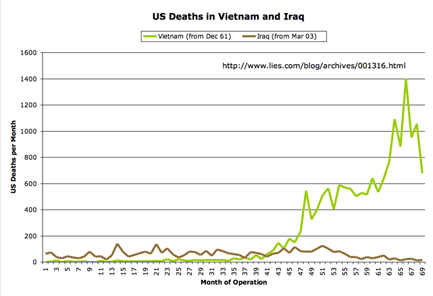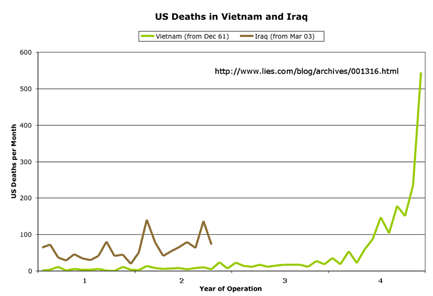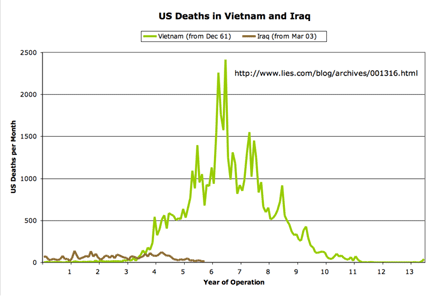Glenn Greenwald has the dirt on a right-wing blogger named Al Maviva who deliberately misquoted the law in order to make a dishonest case that what Bush did in authorizing warrantless wiretaps was not illegal: Purposely misquoting FISA to defend the Bush Administration. It’s kind of involved, but worth a read.
On a related note, I liked this part of Bush’s Saturday radio address:
Yesterday the existence of this secret program was revealed in media reports, after being improperly provided to news organizations. As a result, our enemies have learned information they should not have, and the unauthorized disclosure of this effort damages our national security and puts our citizens at risk. Revealing classified information is illegal, alerts our enemies, and endangers our country.
I thought it was a cool statement, because by changing one key phrase, it could serve as a perfectly apt criticism of another, quite different, act:
Yesterday the identity of Valerie Plame was revealed in media reports, after being improperly provided to news organizations. As a result, our enemies have learned information they should not have, and the unauthorized disclosure of this effort damages our national security and puts our citizens at risk. Revealing classified information is illegal, alerts our enemies, and endangers our country.
See how that works?
In doing my best to think objectively about this latest outrage, I find myself reaching a new appreciation of what Bush has been doing. And I actually (I mean actually actually; I’m not being snarky here) think Bush has a pretty strong argument re: the whole Patriot Act renewal, illegal wiretapping of US citizens, torture as an instrument of government policy, and so on.
Bush’s argument basically comes down to this: It’s a dangerous world out there, with really nasty terrorists who want to do really, really nasty things to us. And it’s Bush’s job to protect us from that. And Bush is arguing, quite explicitly, that he needs these extra-legal powers in order to do that job.
His position is that in this modern era of terrorism, we simply can no longer afford the rule of law, separation of powers, civil liberties, and any sort of limits on the power of the president. And he’s right about that — but with one important caveat. With George W. Bush as president, we can’t afford all those things. Because the fact of the matter is, he’s proven that he is incapable of defending the country against large-scale terrorist attacks while constrained by traditional limitations on presidential power.
But here’s the thing: It isn’t necessarily the case that no one could protect us while also protecting the Constitution. In fact, international terrorism has been around for a while, and every president before George Bush seemed to be doing a pretty decent job of keeping large-scale attacks from happening on US soil. It’s just George W. Bush who’s turned out to be an abysmal failure in that regard.
We clearly must protect ourselves against large-scale terrorist attacks. That’s not negotiable. So we have a simple choice before us: We can choose to retain George W. Bush as president. Or we can choose to retain the rule of law, separation of powers, and civil liberties as national attributes.
We just can’t have both.



